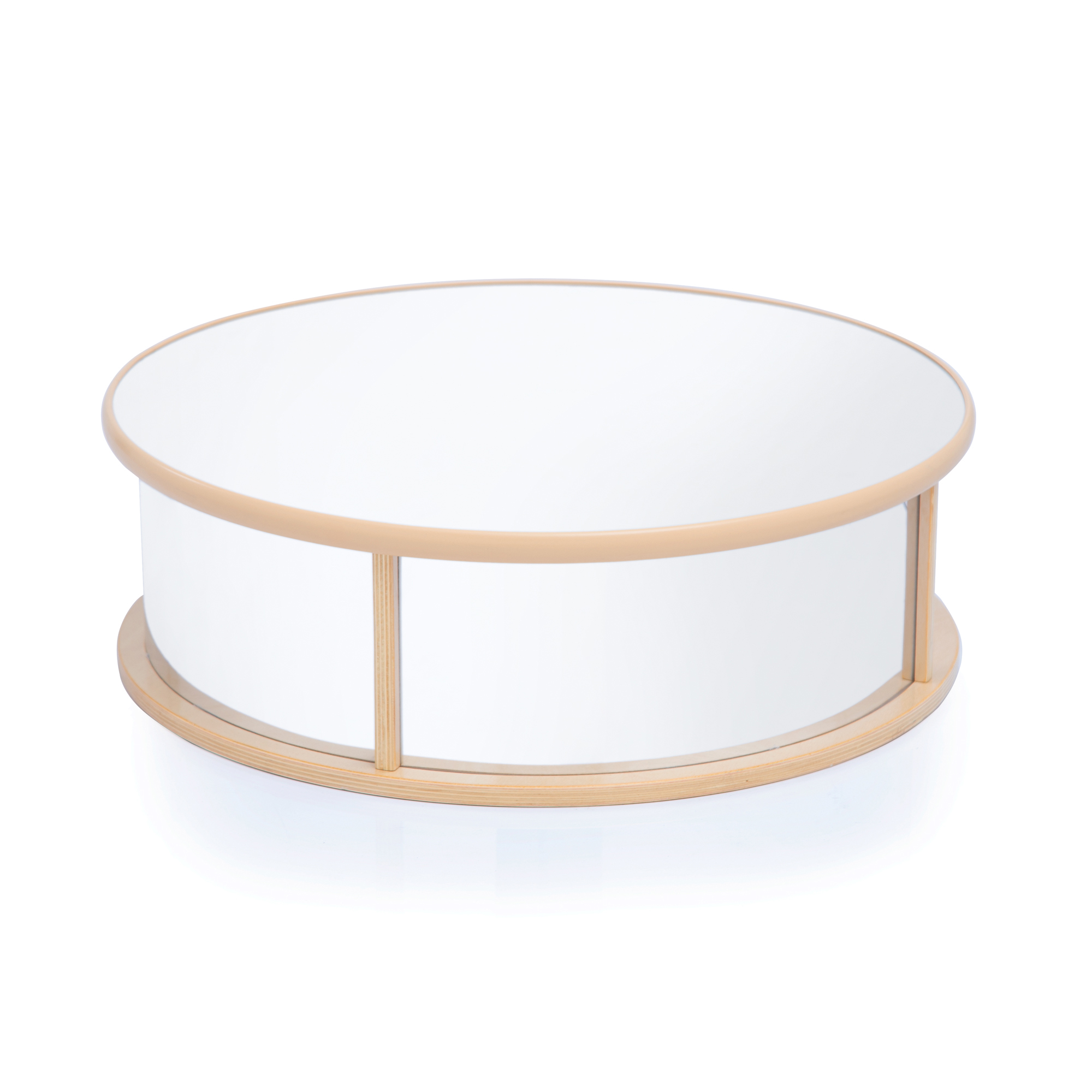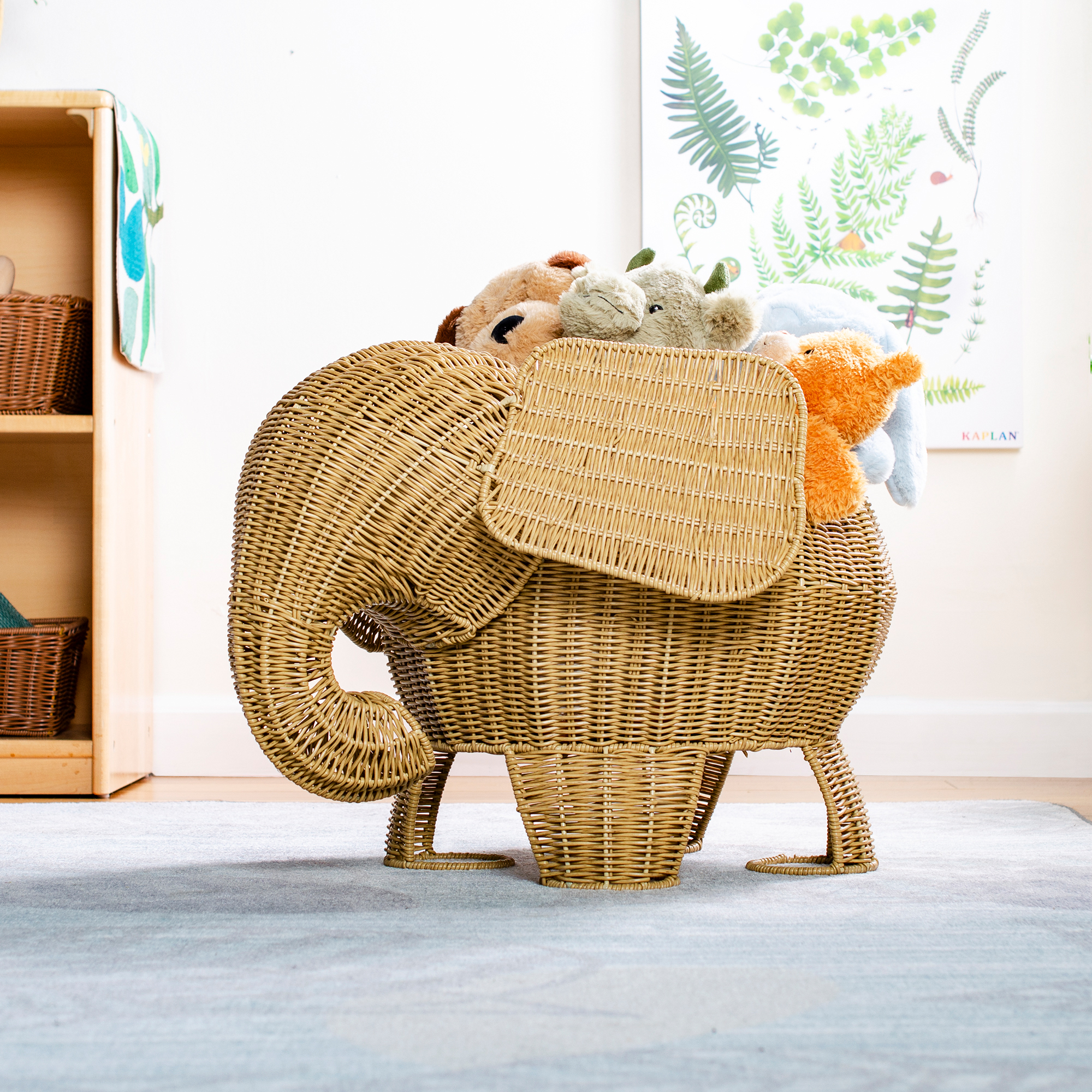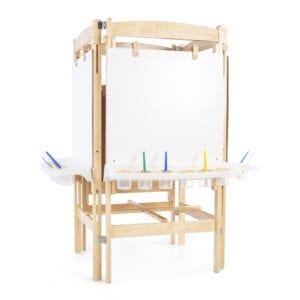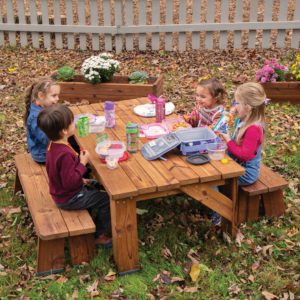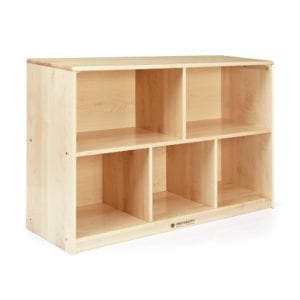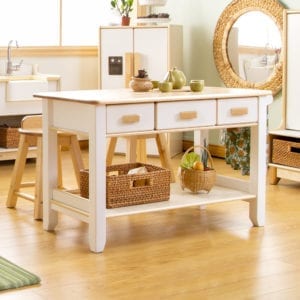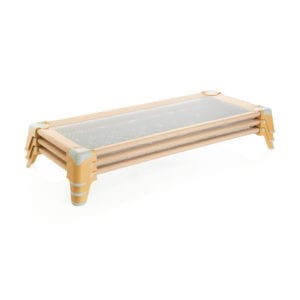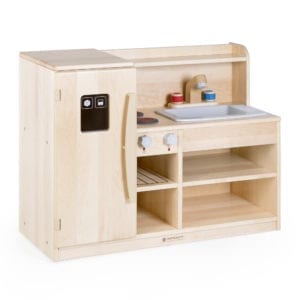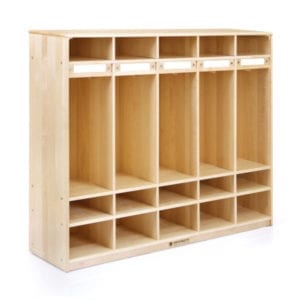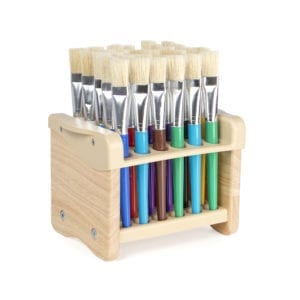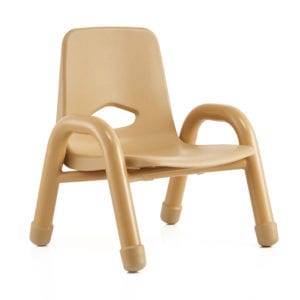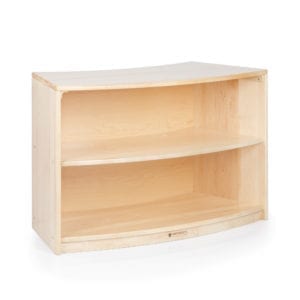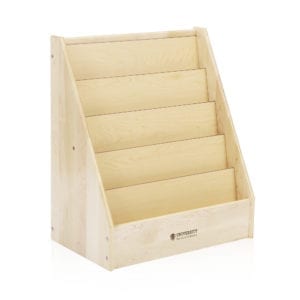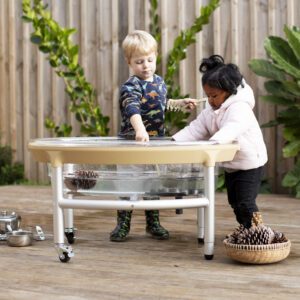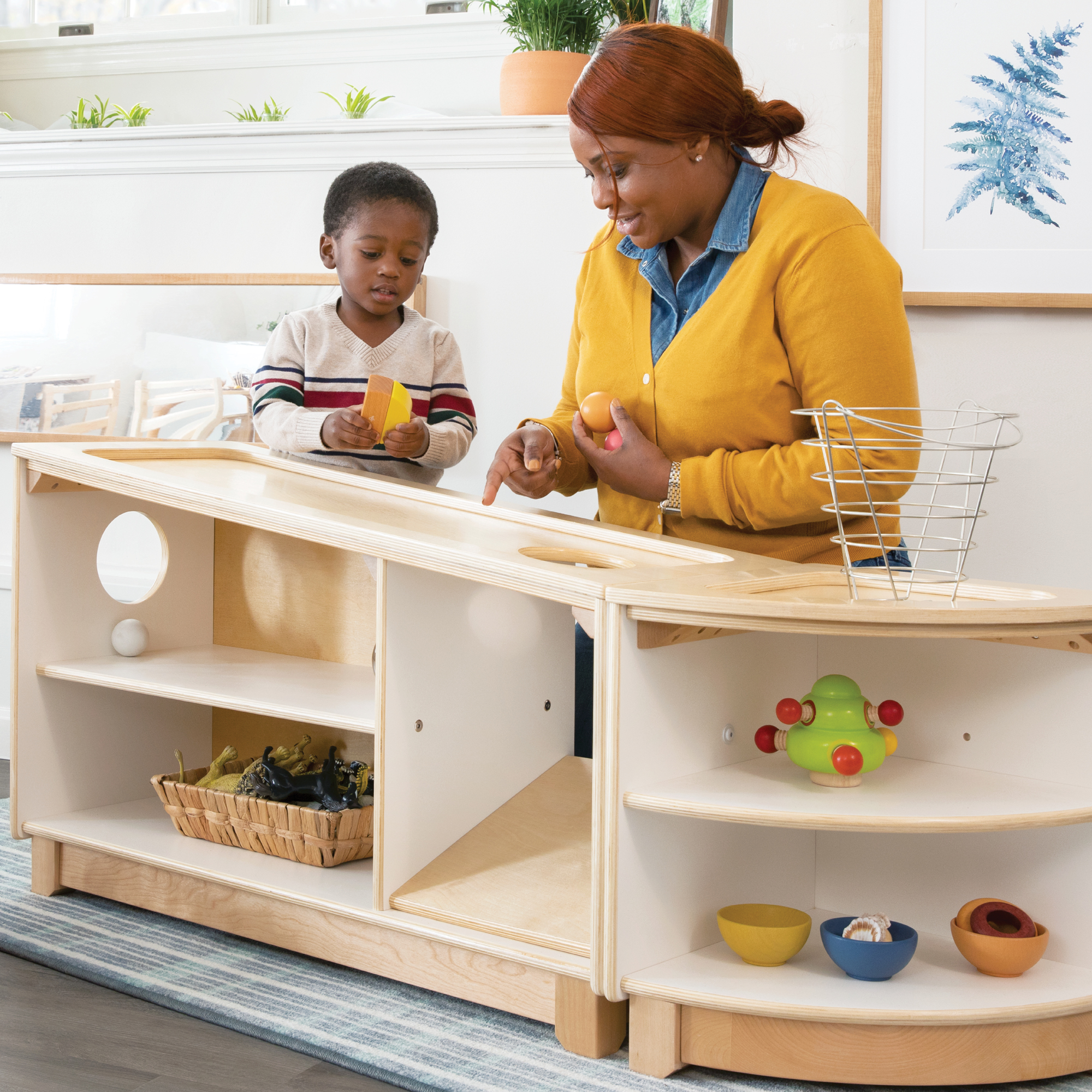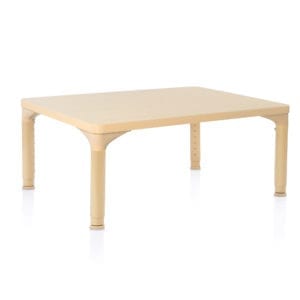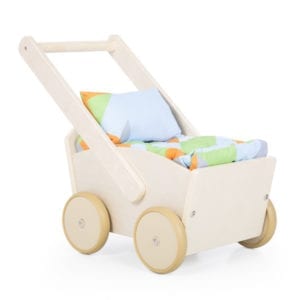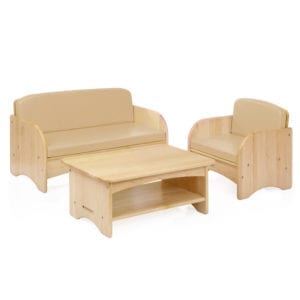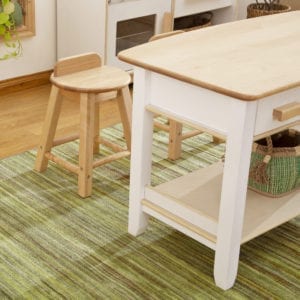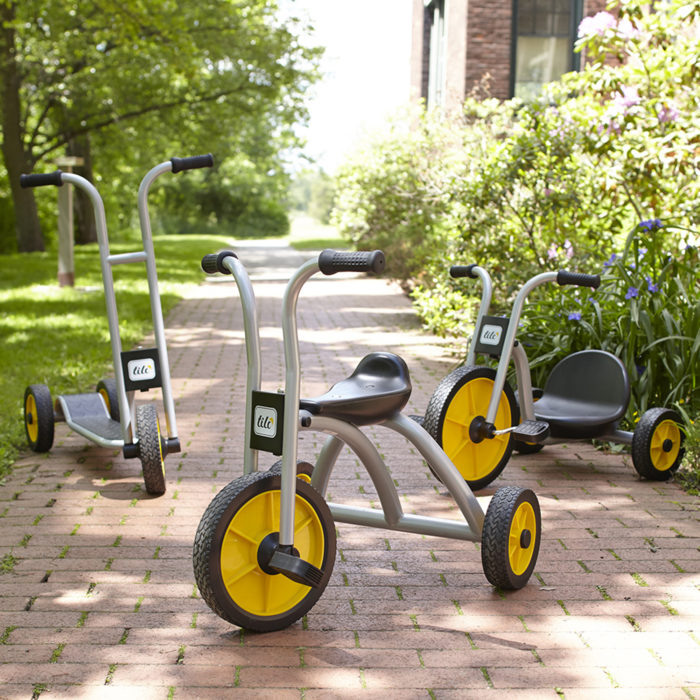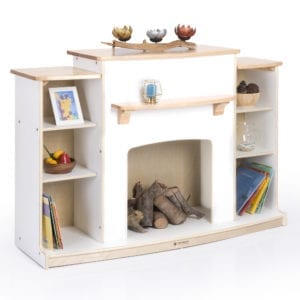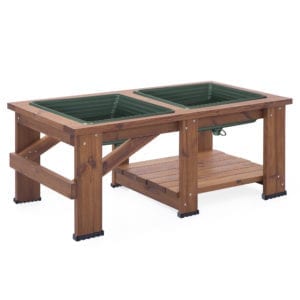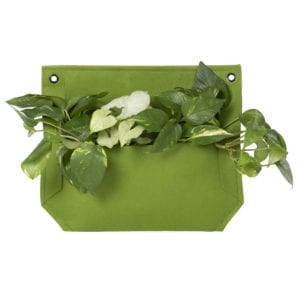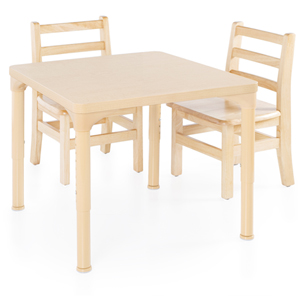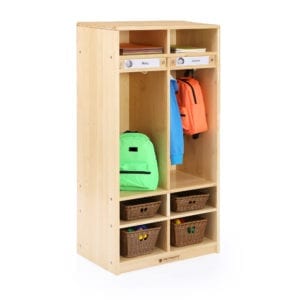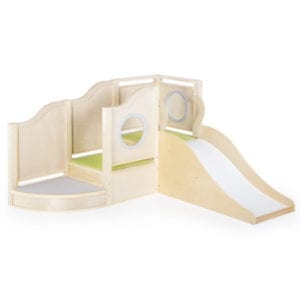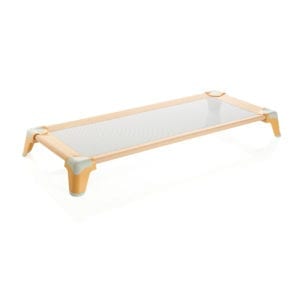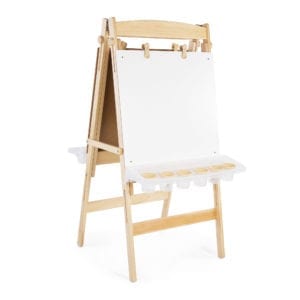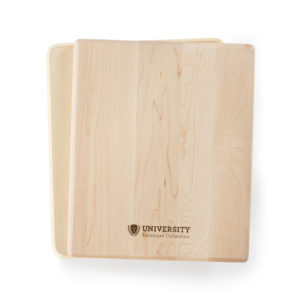The Brilliance of Babies
By: Dr. Laura Wilhelm
Brilliance brings to mind dazzling flashes of insight, clever solutions that suddenly make perfect sense, wisdom, and wit, but are babies actually brilliant? We tend to think of infants and toddlers as cute, helpless, and a little bit clumsy. This view may overlook their real genius. Deep respect for people zero to three means understanding their current strengths, rather than focusing on the skills they haven’t yet mastered. Carefully planned home and childcare environments are a natural curriculum for these brilliant little beings.
We once thought of babies as sweet and helpless bundles that needed only to be cleaned and fed for a few years until they could start learning. However, Dr. Brazelton’s Neonatal Behavioral Assessment Scale (NBAS) demonstrates newborns’ amazing competence in response to their surroundings from the very first day of life. New babies will turn their heads toward the familiar voice when both a stranger and a family member call to them. Mirror neurons allow babies to imitate our expressions and reflect our emotions with their faces. If you shake a rattle near a sleeping baby, you can watch them work to regulate their sleeping state and shut out the disturbance by squeezing their eyes tightly shut and drawing in their arms and legs. When you stop making the noise, you will notice they visibly relax their face and body immediately. The NBAS assessment tool uses these and other reflexes to help families get to know their infant as a responsive person, already capable of learning from day one.
People are the only toys a baby needs during their first couple of months of life. These tiny humans love looking at familiar faces and may focus their gaze on high-contrast areas, like the hairline, at first. As vision improves, they see colors more clearly, and begin to shift their gaze among different objects at varying distances. During floor time, they explore the textures of mats, carpets, and tile. As they push up to get a better view of the action in the classroom, they are strengthening their arm, neck, and chest muscles.
From four to six months, eye-to-hand coordination is improving, allowing babies to quickly locate objects and direct them right into their mouths for further exploration. They love to hold, mouth, and drop board books, wooden blocks, and a variety of household and natural objects that they can experience with all of their senses. As they roll over, sit, and begin to scoot, they are building physical strength and strengthening neural pathways. If a kicking foot chances to come in contact with something that falls over and makes a pleasing noise, they will repeat the motion trying to recreate that sound.
An exciting new world of discovery opens as these small people begin to crawl, cruise, and walk. Babies will even lose sleep during this period because they want so much to be upright and in motion. Independence is a powerful motivator! Toddlers will passionately want to, “Do it myself.” whenever possible. You won’t have to wonder what they are capable of doing. If toddlers can try out a new idea, they will.
With this new mobility comes an urgent need for caregivers to reassess safety issues. Just as mountains have a tree line, homes will need to move unsafe objects above the ‘baby line’, out of reach. Classrooms will need to make sure mobile infants are separated from those not yet able to get out of the way. Because babies love to see how things can fit together, electrical outlets must be covered so that things can’t be poked into them. Furniture should be safe for tiny fingers. Manipulating loose parts provides endless possibilities for joyful exploration, so choking hazards and toxic materials, including some art and cleaning supplies, must be kept inaccessible in locked cabinets or storage rooms. My friend’s toddler watched his daddy install child safety locks on every cabinet door in the kitchen. As soon as the job was completed, the little guy toddled over to the first one and pressed his chubby finger in the correct spot and the door popped right open. Why was he able to figure this out so quickly? Because babies are brilliant! When we treat them respectfully and observe them carefully, they will teach us as much as we teach them.
Dr. Laura Wilhelm is an associate professor of education in the Petree College of Arts and Sciences at Oklahoma City University. For over 30 years, she has been a preschool and elementary school teacher, a university laboratory school director, early childhood professor, and presenter at regional and international conferences, including the 2019 International Teaching & Learning Conference in Ningbo, China. She is the author of Treasure Basket Explorations: Heuristic Learning for Infants and Toddlers, and co-author of The Neglected Child: How to Recognize, Respond, and Prevent, both from Gryphon House, as well as articles, webinars, and blog posts. She currently serves as the president of Oklahoma Association of Environmental Educators.
